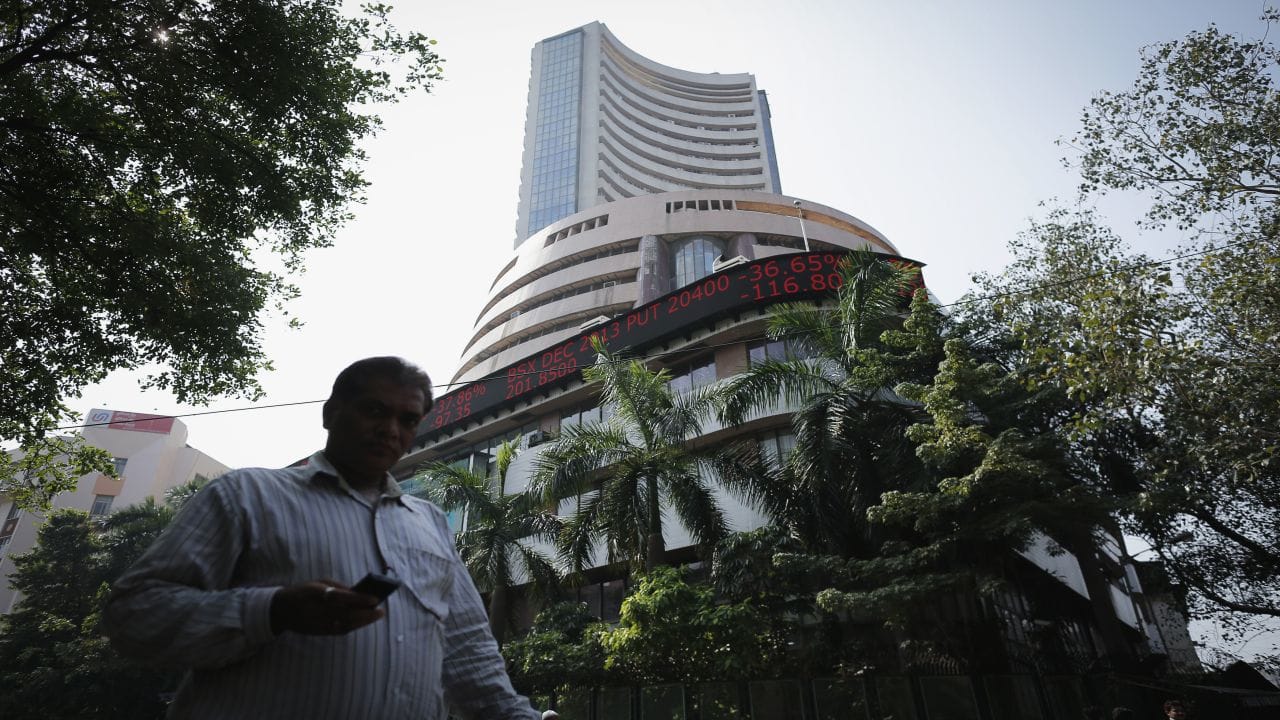 |
|
On August 26th, the Indian capital market experienced a significant downturn, mirroring the overall negative sentiment prevailing in the stock market. This decline was triggered by a confluence of factors, ranging from concerns over potential tariffs imposed by the United States to persistent global economic uncertainties. The Nifty Capital Markets index bore the brunt of this selling pressure, plummeting by over 2 percent and hovering around the 4,302 level in the afternoon trading session. This marked the second consecutive session of losses for the index, underscoring the growing unease among investors. The broader market indices, Sensex and Nifty 50, also witnessed considerable declines. The Nifty 50 fell by approximately 0.7 percent, shedding around 178 points to breach the critical 24,800-mark. Similarly, the Sensex experienced a decline of 0.74 percent, losing more than 600 points to settle around 81,035. This widespread selling pressure underscored the prevailing bearish sentiment among market participants.
One of the primary drivers of this market volatility was the resurfacing of concerns regarding potential tariffs imposed by the United States on Indian imports. The Trump administration had reportedly issued a draft order proposing an additional 25 percent tariff on Indian goods, effective from August 27th. This announcement sent ripples of anxiety through the Indian market, as it raised the specter of reduced export competitiveness and potential damage to the Indian economy. According to Prashanth Tapse, Senior VP (Research) at Mehta Equities Ltd, the biggest headwind for Indian markets remains whether Nifty can scale the 'Wall of Worry' around the 50 percent Trump tariff set to kick in on August 27, which threatens to make almost all of India's USD 86.5 billion exports to the US commercially unviable. The India VIX, a measure of market volatility, surged by nearly 4 percent, reaching a level of around 12.20, further indicating the heightened level of uncertainty and apprehension among investors. In addition to the tariff concerns, the Indian market was also weighed down by weak global cues, continued selling pressure from Foreign Institutional Investors (FIIs), and a weakening Indian rupee. These factors collectively contributed to the negative sentiment and the subsequent decline in stock prices.
The capital market stocks were particularly hard hit by the overall market downturn. Angel One shares witnessed a significant drop of more than 4 percent, trading at Rs 2,346 apiece. Similarly, shares of Kfin Technologies and Multi Commodity Exchange of India (MCX) plunged by nearly 4 percent each. Bombay Stock Exchange (BSE) shares also experienced a notable decline of nearly 3 percent, while CDSL, HDFC AMC, and CAMS shares were down around 2 percent each. Other capital market stocks, including UTI AMC, Indian Energy Exchange (IEX), Motilal Oswal Financial Services, Anand Rathi Wealth, and Nuvama shares, were down around 1 percent each. Bucking the overall trend, 360 One WAM shares were trading in the green with marginal gains, representing an outlier in an otherwise bearish market environment. The decline in capital market stocks can be attributed to several factors, including the overall negative sentiment in the market, concerns about the impact of potential tariffs, and regulatory developments in the financial sector.
Adding to the existing anxieties, recent statements by SEBI Chairman Tuhin Kanta Pandey regarding potential changes to equity derivatives further contributed to the market's unease. Pandey indicated that the market regulator is considering increasing the tenure of equity derivatives after discussion with stakeholders, and a consultation paper in this regard will be initiated. He also emphasized the need to ensure quality and balance in the F&O segment. "Equity derivatives play an important role in capital formation, but we must ensure quality and balance. We will consult with stakeholders on ways to improve in a calibrated manner the tenor and maturity profile of derivative products, so they better serve hedging and long-term investing," he said while speaking at FICCI's 22nd annual Capital Markets Conference in Mumbai on August 21. These statements sparked concerns among market participants about potential changes to the regulatory landscape for equity derivatives, further contributing to the overall negative sentiment. The combination of these factors created a perfect storm for the Indian capital market, leading to a significant decline in stock prices and heightened volatility. Investors are advised to exercise caution and consult with financial advisors before making any investment decisions in the current market environment.
Source: BSE, Angel One, MCX, other capital market stocks drop up to 4% as Nifty falls below 24,800
